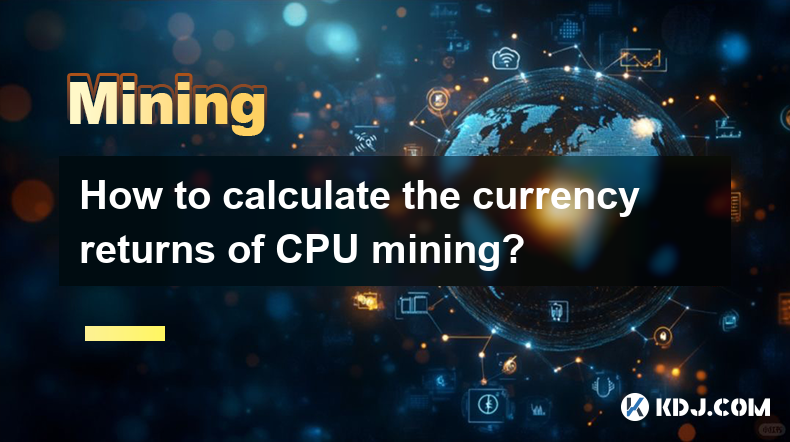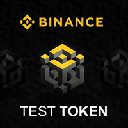-
 Bitcoin
Bitcoin $92,628.6145
-0.48% -
 Ethereum
Ethereum $1,768.4886
-1.00% -
 Tether USDt
Tether USDt $1.0001
-0.02% -
 XRP
XRP $2.1788
-2.09% -
 BNB
BNB $604.6400
-1.64% -
 Solana
Solana $148.1224
-0.74% -
 USDC
USDC $0.9999
0.00% -
 Dogecoin
Dogecoin $0.1726
-5.06% -
 Cardano
Cardano $0.6822
-1.37% -
 TRON
TRON $0.2433
-1.69% -
 Sui
Sui $2.9740
6.38% -
 Chainlink
Chainlink $14.4891
0.72% -
 Avalanche
Avalanche $21.9210
-2.25% -
 UNUS SED LEO
UNUS SED LEO $9.1740
1.21% -
 Stellar
Stellar $0.2616
-2.03% -
 Toncoin
Toncoin $3.1132
-0.55% -
 Shiba Inu
Shiba Inu $0.0...01317
-4.27% -
 Hedera
Hedera $0.1771
-2.49% -
 Bitcoin Cash
Bitcoin Cash $363.3000
1.82% -
 Polkadot
Polkadot $3.9802
-2.53% -
 Litecoin
Litecoin $82.0667
-2.95% -
 Hyperliquid
Hyperliquid $18.0694
-5.17% -
 Dai
Dai $1.0000
0.01% -
 Bitget Token
Bitget Token $4.4799
-3.52% -
 Ethena USDe
Ethena USDe $0.9994
-0.02% -
 Pi
Pi $0.6501
-0.27% -
 Monero
Monero $226.5326
0.45% -
 Uniswap
Uniswap $5.8488
-1.49% -
 Pepe
Pepe $0.0...08497
-7.17% -
 Aptos
Aptos $5.2845
0.26%
How to calculate the currency returns of CPU mining?
Accurate CPU mining return calculations require assessing hashrate, mining rewards, electricity costs, pool fees, and fluctuating mining difficulty to determine profitability and ROI.
Mar 02, 2025 at 06:42 pm

Key Points:
- Understanding Hashrate and its impact on mining rewards.
- Calculating electricity costs and their influence on profitability.
- Factors affecting mining difficulty and its effect on returns.
- Accounting for mining pool fees and their reduction of profits.
- Determining the ROI (Return on Investment) of your CPU mining operation.
How to Calculate the Currency Returns of CPU Mining?
CPU mining, while less lucrative than GPU or ASIC mining for most cryptocurrencies, can still be a viable option for certain coins and those with readily available computing power. Accurately calculating your returns requires careful consideration of several factors. Let's break down the process step-by-step.
1. Determining Your Hashrate:
The first step is to determine your CPU's hashrate. This represents the computational power your CPU contributes to the mining process, measured in hashes per second (H/s), kilohashes per second (kH/s), or megahashes per second (MH/s). Different CPUs have vastly different hashrates. You can use specialized software or online calculators to measure your specific CPU's performance for the chosen cryptocurrency's mining algorithm.
2. Understanding Mining Rewards:
Cryptocurrency mining rewards vary. Some coins offer a fixed reward per block mined, while others use a dynamic reward system that changes over time. You need to consult the specific cryptocurrency's documentation to understand its reward structure. The reward is usually paid in the cryptocurrency itself.
3. Calculating Your Expected Earnings:
Once you know your hashrate and the block reward, you can estimate your earnings. This is not an exact science because the difficulty of mining changes constantly. However, you can use online mining calculators that factor in the current difficulty, your hashrate, and the block reward to provide an estimate of your potential earnings per day or per month.
4. Accounting for Electricity Costs:
Electricity consumption is a significant expense in CPU mining. Your CPU will consume a certain amount of power while mining, and this needs to be factored into your calculations. To calculate your electricity cost, you'll need to know your CPU's power consumption (in watts), your electricity price per kilowatt-hour (kWh), and the number of hours your CPU is mining daily.
5. The Impact of Mining Pool Fees:
Most CPU miners join mining pools to increase their chances of finding a block and receiving a reward. Mining pools typically charge a fee for their services, usually a percentage of your earnings. This fee needs to be subtracted from your estimated earnings to get a more accurate net profit.
6. Mining Difficulty and its Fluctuation:
The difficulty of mining a cryptocurrency adjusts periodically to maintain a consistent block generation rate. A higher difficulty means it takes more computational power to mine a block, reducing your chances of earning rewards. This difficulty adjustment is a critical factor impacting your profitability and needs to be considered when projecting your long-term returns.
7. Calculating Your Return on Investment (ROI):
To calculate your ROI, you need to consider your initial investment (cost of your CPU, any cooling upgrades, and other related expenses) and compare it to your net earnings after deducting electricity costs and pool fees. The ROI calculation will give you an idea of how long it will take for your mining operation to pay for itself.
8. Software and Monitoring Tools:
Various software programs can monitor your mining activity, providing real-time data on your hashrate, earnings, and electricity consumption. These tools are invaluable for tracking your progress and making informed decisions about your mining operation. Choosing the right software for your specific cryptocurrency and hardware is crucial.
Frequently Asked Questions:
Q: Is CPU mining profitable?
A: Profitability depends on several factors, including the cryptocurrency's price, mining difficulty, electricity costs, and your CPU's hashrate. For most popular cryptocurrencies, CPU mining is generally not as profitable as GPU or ASIC mining due to lower hashrates and higher energy consumption relative to the reward. However, some less-popular cryptocurrencies might offer better opportunities.
Q: What are the best CPUs for mining?
A: CPUs with high clock speeds and multiple cores are generally better suited for mining. However, even high-end CPUs may not compete with specialized mining hardware. The optimal CPU will depend on the specific cryptocurrency's mining algorithm.
Q: How can I reduce my electricity costs for CPU mining?
A: Consider using energy-efficient CPUs, mining during off-peak hours when electricity rates are lower, and employing efficient cooling solutions to reduce power consumption.
Q: What are mining pools, and why should I use them?
A: Mining pools are groups of miners who combine their computing power to increase their chances of solving a block and earning a reward. Joining a pool is generally recommended, especially for CPU mining, as solo mining is unlikely to yield significant returns due to the low hashrate of CPUs.
Q: How often does the mining difficulty change?
A: The frequency of difficulty adjustments varies depending on the cryptocurrency. Some cryptocurrencies adjust difficulty every few days, while others adjust it less frequently. You need to consult the specific cryptocurrency's documentation for details.
Disclaimer:info@kdj.com
The information provided is not trading advice. kdj.com does not assume any responsibility for any investments made based on the information provided in this article. Cryptocurrencies are highly volatile and it is highly recommended that you invest with caution after thorough research!
If you believe that the content used on this website infringes your copyright, please contact us immediately (info@kdj.com) and we will delete it promptly.
- BetMGM Bonus Code CUSE150
- 2025-04-24 12:05:12
- Xrp (XRP) Price Prediction: As Momentum Builds, Technical Indicators Hint at Potential Upside
- 2025-04-24 12:05:12
- Alchemy Pay (ACH) price prediction: Technical analysis
- 2025-04-24 12:00:26
- As US-China Tensions Intensify, Investors Seek Refuge in Gold and Bitcoin
- 2025-04-24 12:00:26
- Mutuum Finance (MUTM) Stuns the Crypto World with Impressive Rally, Reaching New Highs
- 2025-04-24 11:55:12
- Memli Krasniqi's cryptocurrencies have increased in value
- 2025-04-24 11:55:12
Related knowledge

How to judge the stability and reliability of the mining pool?
Apr 19,2025 at 02:08pm
When engaging in cryptocurrency mining, choosing the right mining pool is crucial for maximizing your returns and ensuring a stable mining experience. The stability and reliability of a mining pool can significantly impact your overall success in mining. Here, we will explore the key factors to consider when evaluating the stability and reliability of a...

How to deal with abnormal noise during mining machine operation?
Apr 17,2025 at 01:35am
Mining machines are essential tools for cryptocurrency miners, but they can sometimes produce abnormal noises that may indicate underlying issues. Understanding how to identify and address these noises is crucial for maintaining the efficiency and longevity of your mining equipment. This article will guide you through the process of dealing with abnorma...

How to choose the right ASIC mining machine model?
Apr 21,2025 at 08:00am
Choosing the right ASIC mining machine model is crucial for maximizing your returns in cryptocurrency mining. The market offers a variety of ASIC miners, each with its own set of specifications and performance metrics. Understanding the key factors that influence your choice can help you make an informed decision that aligns with your mining goals and b...

How to maintain anonymity when mining?
Apr 17,2025 at 06:01pm
Maintaining anonymity when mining cryptocurrencies is crucial for many miners who wish to protect their privacy and security. This article will guide you through various strategies and tools that can help you achieve a high level of anonymity while engaging in mining activities. Understanding the Importance of Anonymity in MiningAnonymity in the context...

How to automate mining tasks through scripts?
Apr 18,2025 at 01:29pm
In the world of cryptocurrency, mining remains a crucial activity for generating new coins and securing blockchain networks. Automating mining tasks through scripts can significantly enhance efficiency and reduce manual labor. This article delves into the intricacies of automating mining tasks, providing a comprehensive guide on how to achieve this usin...

How to switch mining algorithms in the mining pool?
Apr 18,2025 at 12:00pm
Switching mining algorithms in a mining pool can be a strategic move for miners looking to optimize their mining operations. This process involves several steps and considerations, and understanding how to navigate it can significantly impact a miner's efficiency and profitability. In this article, we will explore the detailed steps required to switch m...

How to judge the stability and reliability of the mining pool?
Apr 19,2025 at 02:08pm
When engaging in cryptocurrency mining, choosing the right mining pool is crucial for maximizing your returns and ensuring a stable mining experience. The stability and reliability of a mining pool can significantly impact your overall success in mining. Here, we will explore the key factors to consider when evaluating the stability and reliability of a...

How to deal with abnormal noise during mining machine operation?
Apr 17,2025 at 01:35am
Mining machines are essential tools for cryptocurrency miners, but they can sometimes produce abnormal noises that may indicate underlying issues. Understanding how to identify and address these noises is crucial for maintaining the efficiency and longevity of your mining equipment. This article will guide you through the process of dealing with abnorma...

How to choose the right ASIC mining machine model?
Apr 21,2025 at 08:00am
Choosing the right ASIC mining machine model is crucial for maximizing your returns in cryptocurrency mining. The market offers a variety of ASIC miners, each with its own set of specifications and performance metrics. Understanding the key factors that influence your choice can help you make an informed decision that aligns with your mining goals and b...

How to maintain anonymity when mining?
Apr 17,2025 at 06:01pm
Maintaining anonymity when mining cryptocurrencies is crucial for many miners who wish to protect their privacy and security. This article will guide you through various strategies and tools that can help you achieve a high level of anonymity while engaging in mining activities. Understanding the Importance of Anonymity in MiningAnonymity in the context...

How to automate mining tasks through scripts?
Apr 18,2025 at 01:29pm
In the world of cryptocurrency, mining remains a crucial activity for generating new coins and securing blockchain networks. Automating mining tasks through scripts can significantly enhance efficiency and reduce manual labor. This article delves into the intricacies of automating mining tasks, providing a comprehensive guide on how to achieve this usin...

How to switch mining algorithms in the mining pool?
Apr 18,2025 at 12:00pm
Switching mining algorithms in a mining pool can be a strategic move for miners looking to optimize their mining operations. This process involves several steps and considerations, and understanding how to navigate it can significantly impact a miner's efficiency and profitability. In this article, we will explore the detailed steps required to switch m...
See all articles























































































